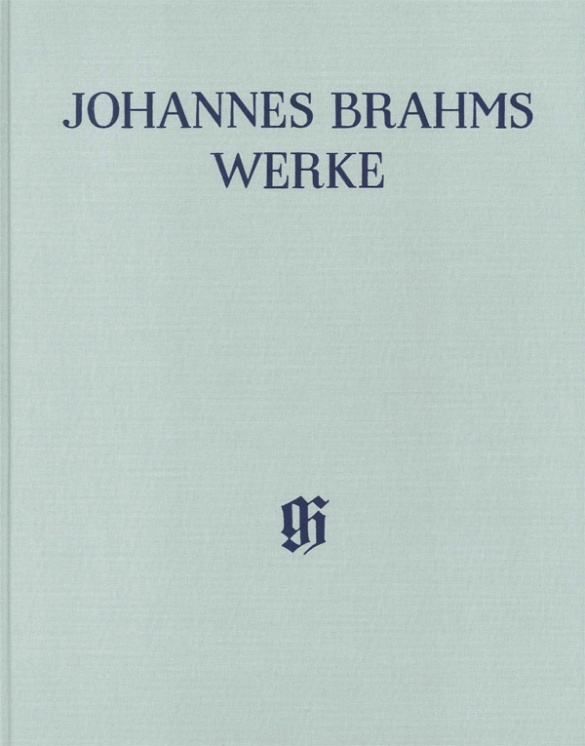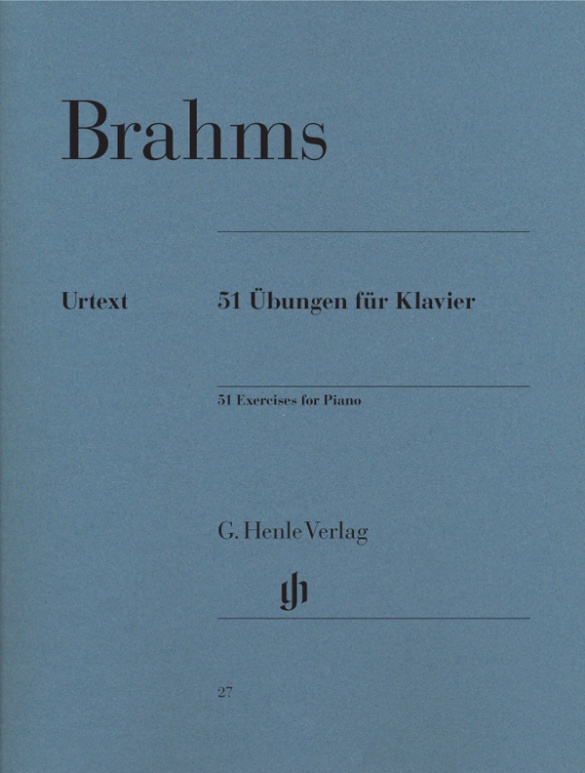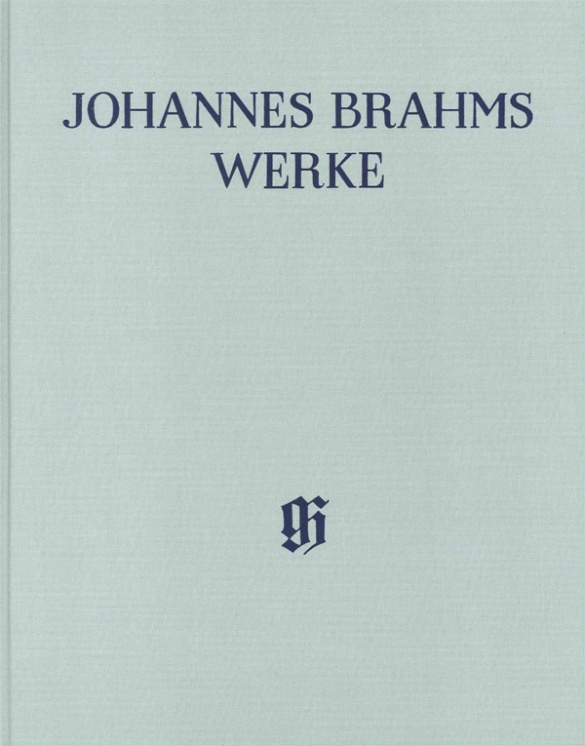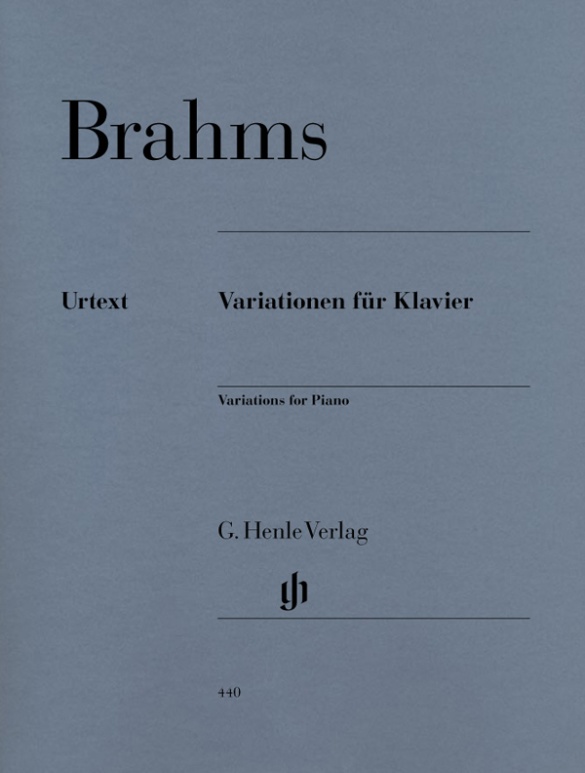

Johannes Brahms
Variations pour piano
CONTENU/DÉTAILS
(Explanation)
CONCERNANT LE COMPOSITEUR

Johannes Brahms
Son œuvre considérable comprend de la musique de chambre, des œuvres pour piano, de nombreuses compositions pour chœur et des lieder (parmi lesquels des compositions sur des textes de chants populaires) ainsi que les grandes pages orchestrales des années 1870 et 80. Ses compositions sont marquées par le procédé de la variation à développement. Il passe à la fois pour avoir été aux antipodes de la Nouvelle École allemande animée par Liszt et le représentant de la «musique absolue».
| 1833 | Né le 7 mai à Hambourg en tant que fils d’un musicien. À l’âge de 7 ans il prend ses premières leçons de piano chez Willibald Cossel, puis chez Eduard Marxen. Premières auditions publiques à partir de 1843. |
| 1853 | Lors d’une tournée de concerts dans les villes allemandes, il fait la connaissance de Schumann qui, dans son article «Neue Bahnen» (Nouvelles voies) l’annonce comme le grand compositeur à venir. Il noue avec Clara Schumann une profonde amitié qui tiendra toute sa vie. |
| 1854–57 | 1er Concerto pour piano en Ré mineur op. 15. |
| 1857–59 | Chef de chœur, pianiste et enseignant à la cour princière de Detmold. |
| 1859–61 | Direction du chœur de femmes de Hambourg. |
| 1860 | Manifeste contre les «Nouveaux Allemands» autour de Liszt. |
| 1863 | Cantate «Rinaldo» op. 50. |
| 1863 | Directeur de l’Académie de chant de Vienne. |
| 1868 | Exécution partielle du «Requiem allemand» op. 45 à Vienne (création de l’œuvre intégrale en 1869 à Leipzig). |
| 1871–74 | Directeur artistique de la Société des Amis de la Musique à Vienne. |
| 1873 | Variations sur un thème de Haydn op. 56a pour orchestre. |
| à partir de 1877 | Son œuvre symphonique débute par la 1re Symphonie en Ut mineur op. 68 (commencée en 1862), composition de la 2e Symphonie en Ré majeur op. 73 (1877), 3e Symphonie en Fa majeur op. 90 (1883), 4e Symphonie en Mi mineur op. 98 (1884-1885): thèmes expressifs, style de type musique de chambre. |
| à partir de 1878 | Voyages en Italie. |
| 1878 | Concerto pour violon en Ré majeur op. 77 pour Joseph Joachim. |
| 1881 | 2e Concerto pour piano en Si bémol majeur op. 83 avec Scherzo. |
| 1886 | Président d’honneur du Tonkünstlerverein de Vienne. |
| 1897 | Vier ernste Gesänge (Quatre chants sérieux) op. 121. Meurt le 3 avril à Vienne. |
About the Authors
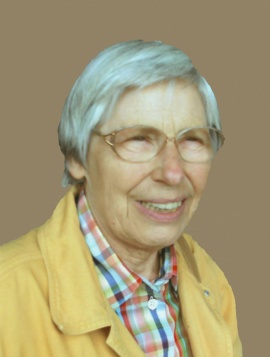
Sonja Gerlach (Editeur)
Sonja Gerlach was born in Hannover in 1936. She did a secondary school teaching degree (Staatsexamen) in music and mathematics in Berlin. From 1965 to 1999 she was a research associate and editor at the Joseph Haydn-Institut in Cologne. In addition to her work as an editor and researcher she addressed questions concerning the chronology of Haydn’s symphonies. She is also very interested in problems of ascertaining authenticity of works in Haydn’s different genres.
In 2000 she retired and moved to Munich where she now lives.

Ernst Herttrich (Editeur)
Dr. Ernst Herttrich, born in 1942 in Würzburg, read musicology, history, German and theology at the universities in Würzburg and Cologne. In 1970 he earned his doctorate in Würzburg with a study of the expression of melancholy in the music of Mozart.
From 1970 to 1990 he was an editor at G. Henle Publishers in Munich, after which he was Head of the Beethoven Complete Edition for over 15 years. In 1999 he took over as Head of the Beethoven-Haus Publishers, and from 2001 was made Head of the Beethoven-Archiv, the research centre at the Beethoven-Haus.
He has been a visiting professor at Meiji Gakuin University in Tokyo and has undertaken several lecture tours both there and to Kyoto. His research interests include source studies, editorial techniques and music history. Herttrich’s publications include “Beethoven. Liederkreis an die ferne Geliebte” (Bonn 1999) and “Ludwig van Beethoven. Biographie in Bildern” (Bonn, 2000). Herttrich has edited over 100 Urtext editions for G. Henle Publishers.
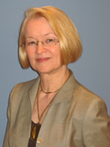
Margit L. McCorkle (Editeur)
The musical career of Margit L. McCorkle, who was born in America but is Canadian by choice, began with the piano, fortepiano and harpsichord at the University of Maryland. After completing her doctorate in musicology, she married Donald M. McCorkle, Professor of Musicology at the University of British Columbia in Vancouver, Canada (whose research focus was the music bibliography of Johannes Brahms). Together they began work on a Brahms Catalogue of Works. Following Donald McCorkle’s death in 1978, Margit McCorkle carried on the project alone, which was published by G. Henle Publishers in 1984 as Brahms’ “Thematisch-Bibliographisches Werkverzeichnis”.
In the late 1980s McCorkle was commissioned to prepare the “Thematisch-Bibliographisches Werkverzeichnis” for Robert Schumann together with the Robert Schumann Research Centre in Düsseldorf; this catalogue was published in 2003 as part of the New Schumann Complete Edition (Akio Mayeda and Klaus Wolfgang Niemöller) by G. Henle Publishers and Schott Music. Over the past few years Margit McCorkle has increasingly engaged in doing translations of musicological texts, including ones for the Robert Schumann and the Carl Maria von Weber Complete Editions.
Informations sur la sécurité du produit

G. Henle Verlag
Vous trouverez ici des informations sur le fabricant du produit.G. Henle Verlag e.K.
Forstenrieder Allee 122
81476 München
Allemagne
info@henle.de
www.henle.com
recommandations
autogenerated_cross_selling
Autres éditions de ce titre


